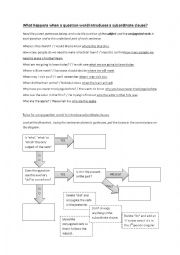
|
Using a question word to introduce a subordinate clause
Thorough explanation of, and exercises about, introducing subordinate clauses using question words or if/whether.
E.g. Where is the church? / I don´t know where the church is.
Worksheet takes a deductive approach. Pupils work out the rule from the examples given, fill in a flowchart to explain the rule, and then practise with closed and open-ende...
Level: advanced
Age: 14-100
Type: grammar-guide
Downloads: 19
|
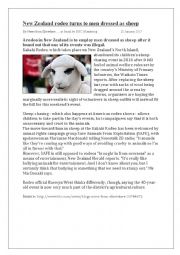
|
Reading comprehension - 2 stories about NZ animals
2 articles from the BBC. One is about people replacing sheep at rodeos; the other is about the kokako, a bird in New Zealand thought to possibly be extinct.
Exercises cover "wh" questions, vocabulary, gist reading, reformulation, and creative writing tasks.
Level: advanced
Age: 10-100
Type: reading
Downloads: 46
|

|
2 strange Victorian news stories: reading exercises
2 news stories from the BBC that retell strange Victorian deaths (a man killed by a hammer-wielding automaton in an accident in a clock tower, and two skeletons found behind a wall in a Spanish theatre). Exercises cover reading for gist, vocabulary, comprehension and language analysis. Answers provided. Suitable for advanced ESL or younger native s...
Level: advanced
Age: 14-100
Type: reading
Downloads: 67
|
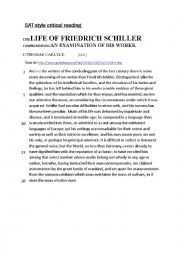
|
SAT-style critical reading / reading comprehension on Schiller
SAT-style critical reading test on Schiller. Covers reading comprehension and high-level vocabulary. Answers and text included.
Level: advanced
Age: 15-100
Type: reading
Downloads: 22
|
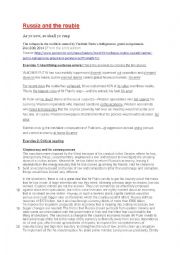
|
SAT-style critical reading: Russia and the Rouble
Article from "The Economist" about Russia´s financial policies with multiple choice (SAT-style) questions. Answers provided.
Level: advanced
Age: 15-100
Type: reading
Downloads: 17
|
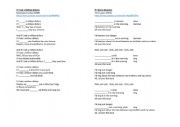
|
Conditional form in songs
3 songs which use the conditional:
If I had a million dollars
If I had a hammer
If I didn�t love you
Gap-fill activities increase in difficulty from song 1 to song 3.
Level: intermediate
Age: 11-100
Type:
Downloads: 15
|
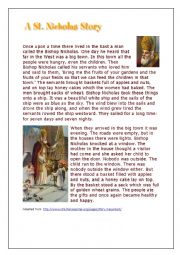
|
Saint Nicholas - comprehension and past simple
The legend of Saint Nicholas (Santa Claus) in a simplified version, plus exercises on question words, antonyms and creative writing. The grammar focus is on the past simple.
Level: intermediate
Age: 7-100
Type: reading
Downloads: 82
|
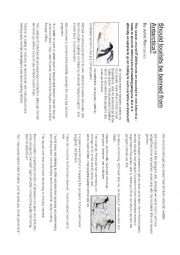
|
Tourists in Antarctica: article and vocabulary/grammar questions focusing on reading skills
Questions focus on using the context to elicit the meaning of unknown vocabulary, and using grammatical knowledge to reformulate sentences from the text.
The article discusses the benefits and risks of Antarctic tourism.
Level: advanced
Age: 13-100
Type: worksheet
Downloads: 38
|
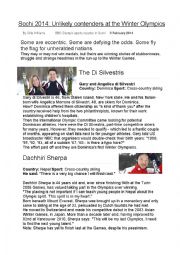
|
Unlikely competitors at Sochi 2014 READING COMPREHENSION
Information about 4 unlikely competitors at Sochi 2014. Exercises include true/false, gap-fill, correct the mistake, answer in sentences, vocabulary matching, using key phrases, creative writing or discussion.
Level: intermediate
Age: 13-100
Type: reading
Downloads: 59
|
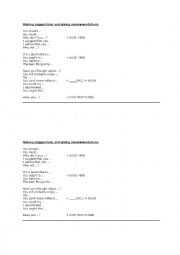
|
Making suggestions and giving advice: structures
Writing frame modelling the structures used for making suggestions and giving advice.
Level: intermediate
Age: 8-100
Type: grammar-guide
Downloads: 16
|